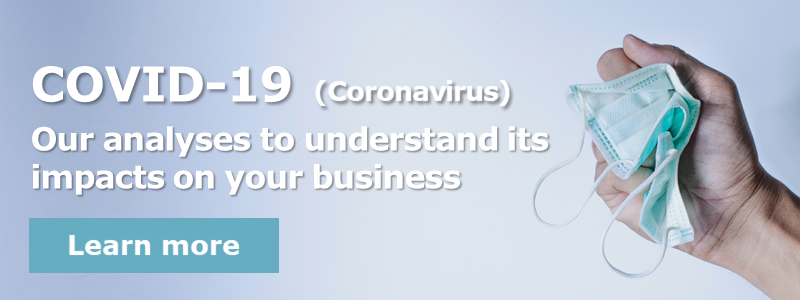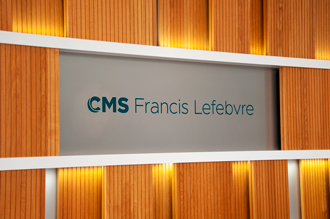
Key contact
The French President announced on Easter Monday that the lockdown should be gradually lifted beginning on 11 May 2020. From that date, restrictions may be eased on some activities previously subject to lockdown and thousands of employees who have been teleworking from home since 15 March 2020 could begin to return to the office. Companies need to begin planning now for their exit from the crisis, which will be part of a long process. They need to review their organisation in order to comply with all of the government's recommendations for preventing the risk of contamination by Covid-19 in order to protect their employees.
In this context, it is essential not only that all measures are taken to protect employees’ health and safety but also that these procedures and measures are correctly assessed and formalised, to ensure that the company is properly protected against any risk of its liability being incurred for breach of its safety obligation.
The recent court judgement ordering Amazon to assess the inherent professional risks posed by the Covid-19 epidemic at all its warehouses and to involve employee representatives in that assessment, to adopt preventive measures and, in the meantime, to restrict its activity only to food, health and medical products, subject to a penalty of €1 million per day for delay in compliance, illustrates this need (Ord. Nanterre Court of Justice, 14 April 2020, no. 20/00503).
Two essential tools must mainly be used in this regard: the DUER (Single Risk Assessment Document) and the company rules.
The DUER
As it previously did with regard to the H1N1 influenza epidemic (DGT circular no. 9/16 of 3 July 2009 supplementing circular no. 2007/18 of 18 December 2007), since the start of the current health crisis the DGT (French General Labour Directorate) has recommended employers to update the DUER (companies and employees Q&A, 28 February 2020). The DGT specifies that “the risk assessment in the company must be renewed due to the epidemic, to minimise the risks of it spreading in the workplace or during work” and that “this new assessment must be recorded in the DUER which must be updated to take account of changes in circumstances.” Finally, it specifies that updating of the DUER should be “conducted according to a procedure involving the staff representative bodies (CSE – Comité social et économique) as well as the occupational health department.”
Although the purpose of the DUER is more to identify, list and assess professional risks associated with the company’s activity than to record health risks, there can be little doubt that the major health crisis affecting the country and the enormous upheaval it is causing to the company's organisation, justifies updating of the DUER.
This update firstly requires a new risk assessment. Although the French Labour Code does not require employee representative bodies to be involved in this assessment, their involvement is clearly required by a 2002 circular (DRT circular no. 2002/6 of 18 April 2002). This is also one of the main complaints made by the judge against Amazon, which the interim court order of 14 April 2020 ordered to assess the inherent professional risks posed by the Covid-19 epidemic at all its warehouses and to involve employee representatives in that assessment. In any case, the CSE must be consulted before any significant changes to the organisation of work.
The methodology used to update the DUER must first of all lead to identifying work situations in which the conditions for transmitting Covid-19 are met and assessing, for each of them, the level of risk (close contact or not, brief or prolonged contact).
Once these situations have been identified, the employer must take the necessary protective measures to prevent this risk of transmission, depending on the significance of the risk. These measures must relate to management of both space and time, in order to minimise direct and indirect social interactions:
- management of individual space (one or two people per office), open-plan offices (continued use of remote working, layout of offices, installation of protective barriers), communal spaces such as entrance halls, break rooms, company restaurant, cloakrooms, lifts, stairs; collective spaces by limiting the number of people in meetings, creating markers for compliance with social distancing rules, making masks and hydroalcoholic gel available, cleaning and regular disinfection of premises and workstations, etc. For example, with regard to the risk of contamination at the entrance to the company, we note that in its interim order of 14 April 2020, the Nanterre court considered that the risk generated by employees being required to cross a rotating gantry to enter the warehouses had been insufficiently taken into account by Amazon, even though the company had imposed a minimum distance between employees and supplied hydroalcoholic gel to each employee individually at the entrance;
- time management: adaptation of working hours; establishment of alternating or successive shifts; use of occasional work in premises where strictly necessary (e.g. intervention by the IT department on the workstation).
In addition, the employer must provide specific information and training to employees adapted to the contamination risks associated with the nature of the company's activity: reminder of barrier gestures and social distancing, training in the use of protective equipment, etc. (sector-specific sheets available from the French Labour Ministry website).
Finally, specific and reinforced measures for cleaning and disinfecting premises and workstations, as well as work equipment (especially if they are used by several employees) must be implemented, based on suitable procedures.
This update of the DUER may be summarised in a two-column table presenting, separately for each work unit: firstly, the circumstances or work situations in which employees could be exposed to the virus and, secondly, the measures adopted by the company to prevent or minimise the risk in terms of equipment, work organisation, and employee information and training, etc.
This will formalise the measures adopted and the company’s compliance with all of the Government’s recommendations disseminated since the start of the crisis. If its liability were to be invoked, it will constitute an essential aspect of the employer’s defence.
The company rules
The content of the company rules is listed exhaustively in law. They must contain measures for applying health and safety regulations in the company or establishment, particularly instructions for ensuring that each worker has the training and ability to take care of his/her health and safety and that of others affected by his/her action or inaction at work.
As such, considering the impact of the epidemic on health and safety rules, the measures taken to combat the spread of the virus certainly fall within the scope of the company rules. This is also the position that was adopted by the authorities during the H1N1 influenza epidemic (DGT circular no. 2009/16 of 3 July 2009, supplementing DGT circular no. 2007/18 of 18 December 2007 on the continuity of business activities and working and employment conditions of employees in the private sector in the event of an influenza pandemic). The French Labour Ministry’s companies and employees Q&A also emphasises this, in relation to the ability for employers to impose a temperature check at the entrance to the company.
The employer could therefore issue a memo, based on the prevention measures contained in the DUER, to define the health and safety obligations to be respected by employees in all areas of the company, whether barrier gestures or, more generally, social distancing rules, hygiene measures such as washing hands, reducing or even banning face-to-face meetings or limiting the number of participants or, finally, establishing systematic checking of employees’ temperature at the entrance to the company.
Although it establishes temporary obligations in order to tackle the ongoing Covid-19 pandemic, it seems that this memo should be subject to the procedure applicable to company rules, implying, on the one hand, prior consultation of the CSE and, on the other hand, transmission of the document to the labour inspectorate and the completion of filing and publication formalities.
However, by way of exception to the provisions requiring entry into force of the prescribed measures at least one month after performance of those formalities, in view of the urgency of the situation, the obligations defined could be implemented immediately on condition that its prescriptions are immediately and simultaneously communicated to the secretary of the CSE and to the labour inspectorate. The CSE should then be consulted as quickly as possible.
There is a three-fold advantage in incorporating the obligations imposed on employees in a memo according to the same legal procedure as the company rules :
- it allows the members of the CSE delegation to be involved, as they are consulted on the content of the memo;
- it allows to be explicitly stated that any breach of the prescriptions defined in the memo will be subject to disciplinary action;
- it formalises the measures taken by the employer and the resulting obligations for employees, strengthening the protection for the company against the risk of its liability being invoked for breach of its safety obligation. Indeed, it was partly this lack of formalisation that led the judge to rule, in the Amazon case, that the company had failed to justify the measures and protocols put in place.
The measures adopted must be brought to employees’ attention widely within the company in order to be enforceable against them.
The lawyers from the employment law department of Francis Lefebvre Avocats are at your disposal to help you prepare for this decisive deadline.
Report: impacts of Covid-19 (Coronavirus)
Our law firm offers you its legal assistance to address all the impacts of Covid-19 (Coronavirus) on your business. Read our dedicated report below.
For more information on our law firm:
Our law firm is a leading international business law firm. Its deep roots, unique positioning and highly recognised expertise enables it to deliver innovative, high value-added solutions in all areas of the law.










